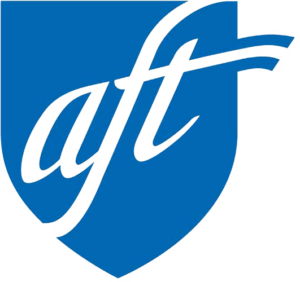Monthly Op-Ed post by UHPA President David Duffy
The University Regents hire and fire the President and have “jurisdiction over the internal structure, management and operation of the university.” The President is the executive officer and the Regents operate through him and he in turn is responsible for the various chancellors who are responsible for individual campuses.
Regents are selected by the Governor from a list of candidates suggested by the Regents Candidate Advisory Council and then approved by the State Senate. The Advisory Committee usually has seven members, although, as of the date of writing, the tenure of four members has expired and they have not yet been replaced. Three Regents rotate off next year and there doesn’t appear to be a process to replace them.
The board has 15 members, one of whom is a student and two are “at large.”
The others represent the different islands. The student member serves for two years, and the rest can serve no more than two five-year terms. Based on the biographies on the Regents’ home page https://www.hawaii.edu/admin/regents/index.php, three have BA degrees from UH and one has an associate degree. Three have management experience in higher education, two of these at UH (one as a budget officer and then as provost at Kauai CC, the other as a librarian and assistant vice president for academic affairs.) Eleven have administrative/management experience in business. Five are lawyers. Two are ex-military. Eleven went to high school in Hawaii. While several have taught classes at UH, none had careers as professors. One is a researcher at a private firm.
The Challenges of Being a Regent
UH is an extremely complex $1.5 billion dollar enterprise, with seven community colleges, two undergraduate baccalaureate four-year colleges, and a world-class research institution with a substantial teaching component. The university has almost 60,000 students with an average age of 25 years, from very diverse backgrounds. In addition, the university brought in more than $400 million in extramural research funds. Throw in a medical school and two mountain-tops with some of the most advanced—and controversial—astronomical observatories in the world. This is a lot to have “jurisdiction” over.
Few regents arrive with previous knowledge of large educational institutions
Two five-year terms, even with overlap, represent a challenge to understanding the system and providing a continuity of goals and traditions. Since 2001, UH has experienced four presidents, so again continuity is limited. In addition, different governors may appoint regents with very different philosophies regarding the role of the state in education. In the past the board had a long-serving Secretary who “socialized” new Regents and provided a sense of how the board and the institution interacted. More recently the position has apparently become less mentor and more staff.
To compensate, the office of the Vice President of Academic Affairs prepares a handbook for the Regents which generally reflects the views of the system-level administrators, rather than the full complexities of the various campuses, faculty and students. The handbook is big on organization but there is rather less on institutional knowledge: how the board sees itself operating or how the different parts of the university fit together. There is no clear explanation of the level of involvement of the board or the balance between micromanaging and giving a free hand to presidents or campuses.
The Board of Regents also has by-laws
The by-laws deal with the nuts and bolts of board operations but again do not address the big picture. Finally the board has policies which lay out the relations with the president, administration and faculty, but some of it is obscure or apparently contradictory. Perhaps by design, there is no clear expression of what the Regents do or their vision of the University.
Governance isn’t what it used to be
In fairness, the idea of a board made up of citizens who use common sense to govern is a relict of the 18th Century when universities were simpler and government oversight and regulations were minimal. Today universities are complex multi-billion dollar entities. Political appointees, volunteers, may not be the best way to run them, given the demands of the job and the expertise required, an expertise that is different from that found in most businesses or non-profits. The position requires those who understand the promise and reality of higher education, why American universities are the envy of the world, and have a longer vision than a mere decade for UH, a century-old institution which, while young amongst America’s institutions of higher learning, can more than hold its own.
Candidates for the Board of Regents
Being a Regent is time consuming and unpaid and under appreciated. It can be hard to find volunteers to serve. Faculty and the community can strengthen the process by nominating worthy candidates.



